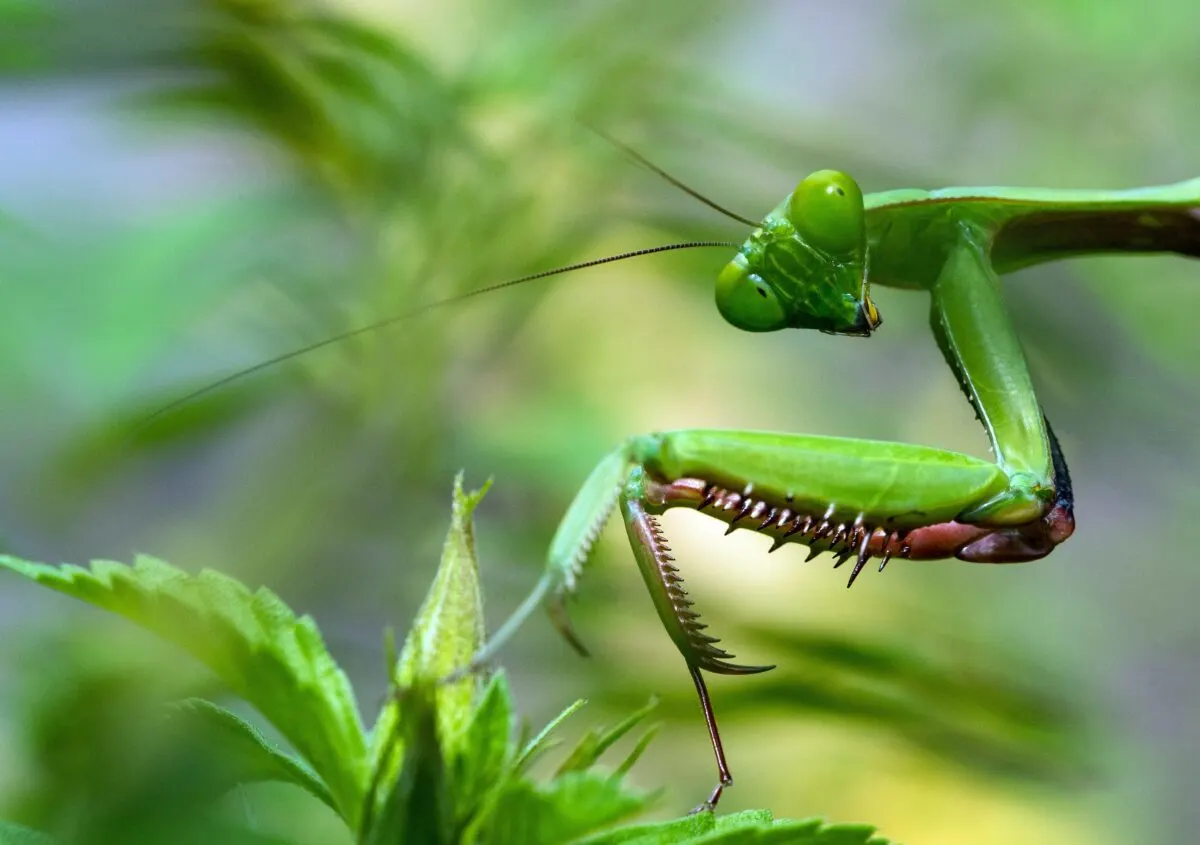Have you ever been into gardening or farming? If yes, you must have encountered an incredible creature with a stingy bite. You guessed it right. We are talking about praying mantises known for their stingy mandibles and long arms. These tiny creatures are as common as you expected.
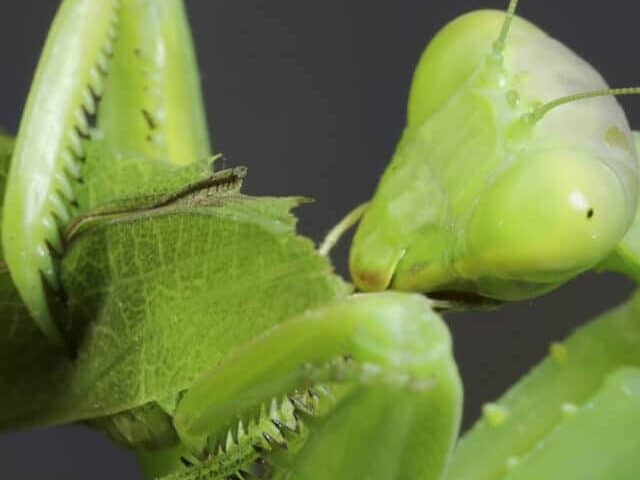
Do praying mantis bite? You must be wondering for the answer, as many do. A simple answer to this question is yes, they bite their preferred prey, such as small insects and tiny living beings, but not humans generally.
However, you won’t find it harmful if they do so while seeing your finger as their insect prey. To know more about mantises, like do they harm humans? What to do if praying mantis bites you? And many more.
Stay here to read the fantastic facts before believing the rumored concepts.
Facts about the praying mantis?
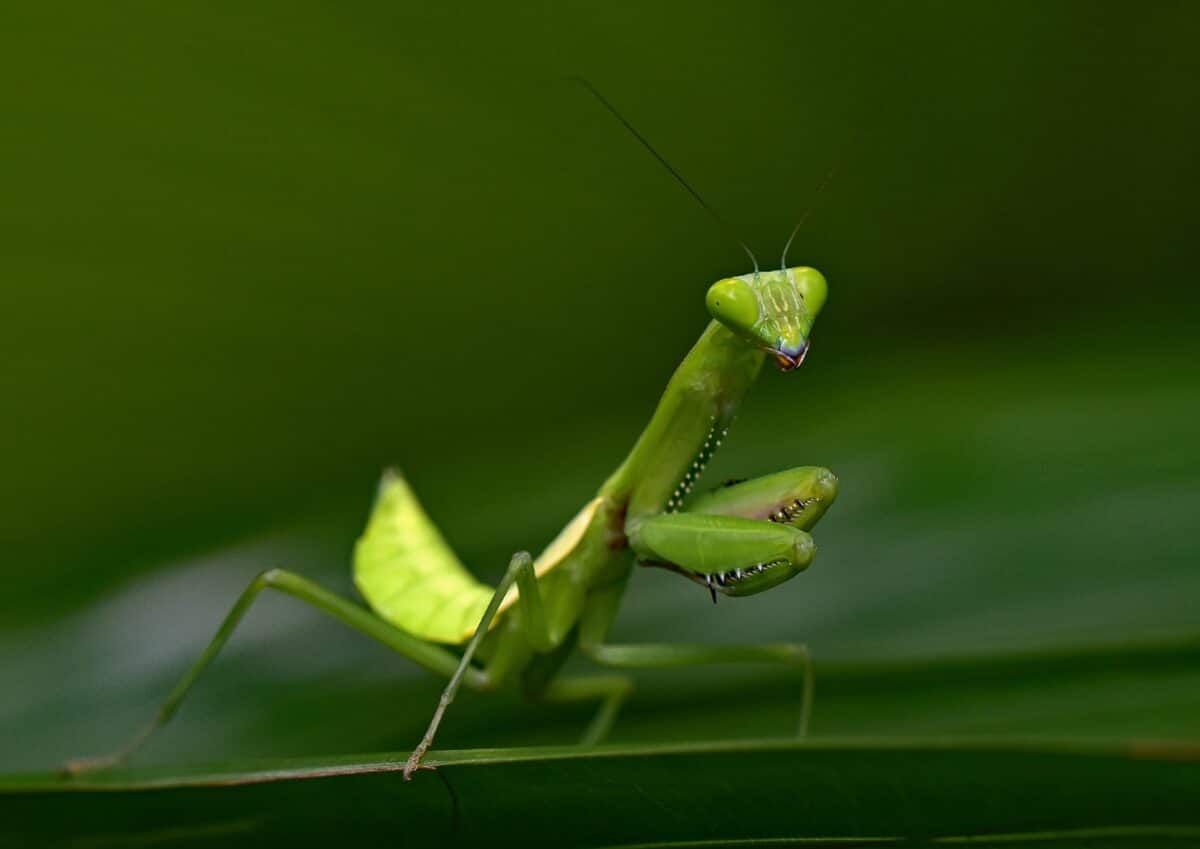
Before diving into the detailed study of praying mantises. Have a look over some of its interesting facts!
- The praying mantis is a tiny insect likely to live in temperate and tropical areas.
- It prefers preying on tiny living beings who reside in grass and crops.
- Praying mantises do not prey on dead beings.
- Mantises are 6 inches long and have a long scale-like body, fatty from the abdomen. Their front legs are armed with mandibles as teeth to defend them and capture prey. The mandibles over the front legs do not allow the target to escape.
- They have a total of six legs. The four front legs have mandible armour. These four legs are typically used for catching prey. The remaining back legs are used for walking and running.
- They exist worldwide, ranging in various colors from brown, green, or yellow.
- Praying mantises are known to be incredible creatures for growth of crops and grass due to their ability to prey on the small animals that harm the crops.
- These tiny creatures are named based on their long arms and bowed shaps from the front. They can spin their heads about 180 degrees, showing their preying intensity.
- One exciting but fearsome fact about female mantises is that they tend to prey on their male partner during mating. It is because of the reason that male mantises are rich in proteins. This shows their quality and potential to choose suitable prey.
Do Praying Mantis bite?
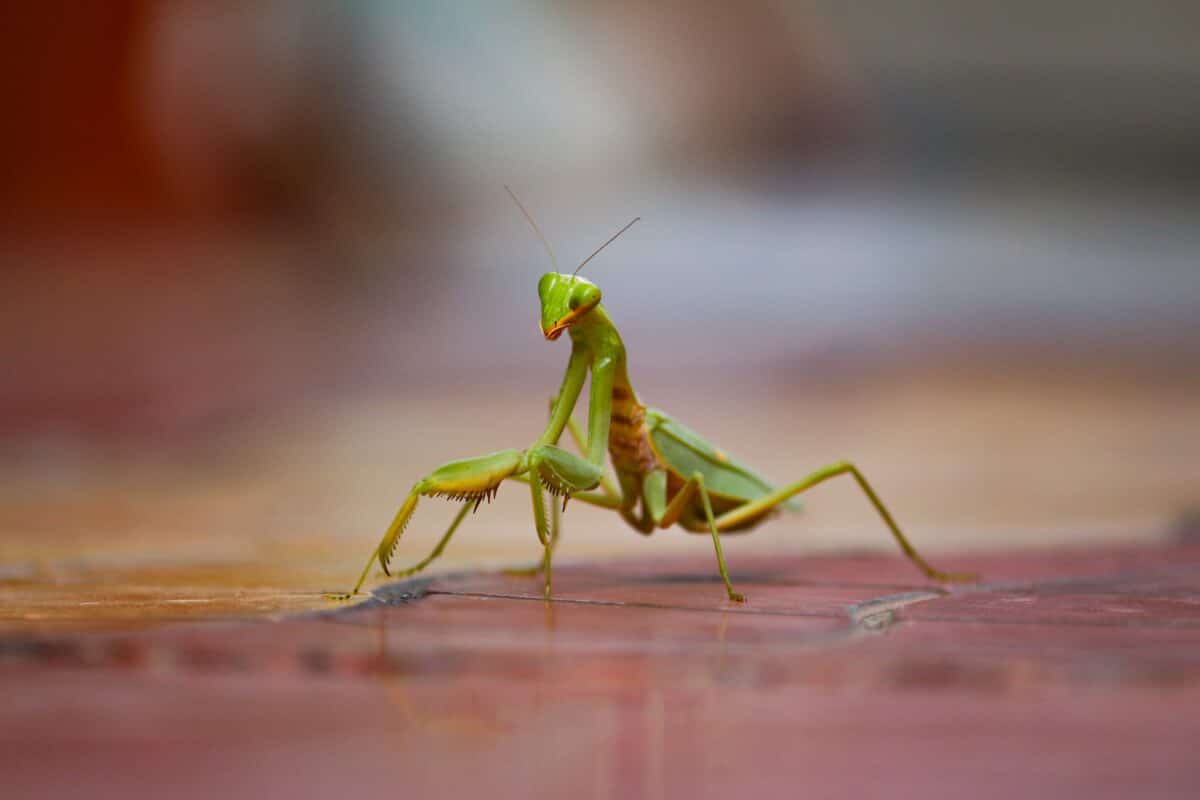
Praying mantises can easily choose suitable prey they can easily capture. They have a natural taste for preying the small living insects. But they might bite you accidentally if you step into the farm or garden, which is likely.
Praying mantises can entirely revolve their heads to spot their small desired prey easily. Their insight and ability to look for prey won’t allow them to bite humans, but sometimes they might take your prey as their small insect prey.
Praying mantis’s reproductive cycle, check out for an interesting detailed explanation.
Are Praying Mantis harmful to humans?
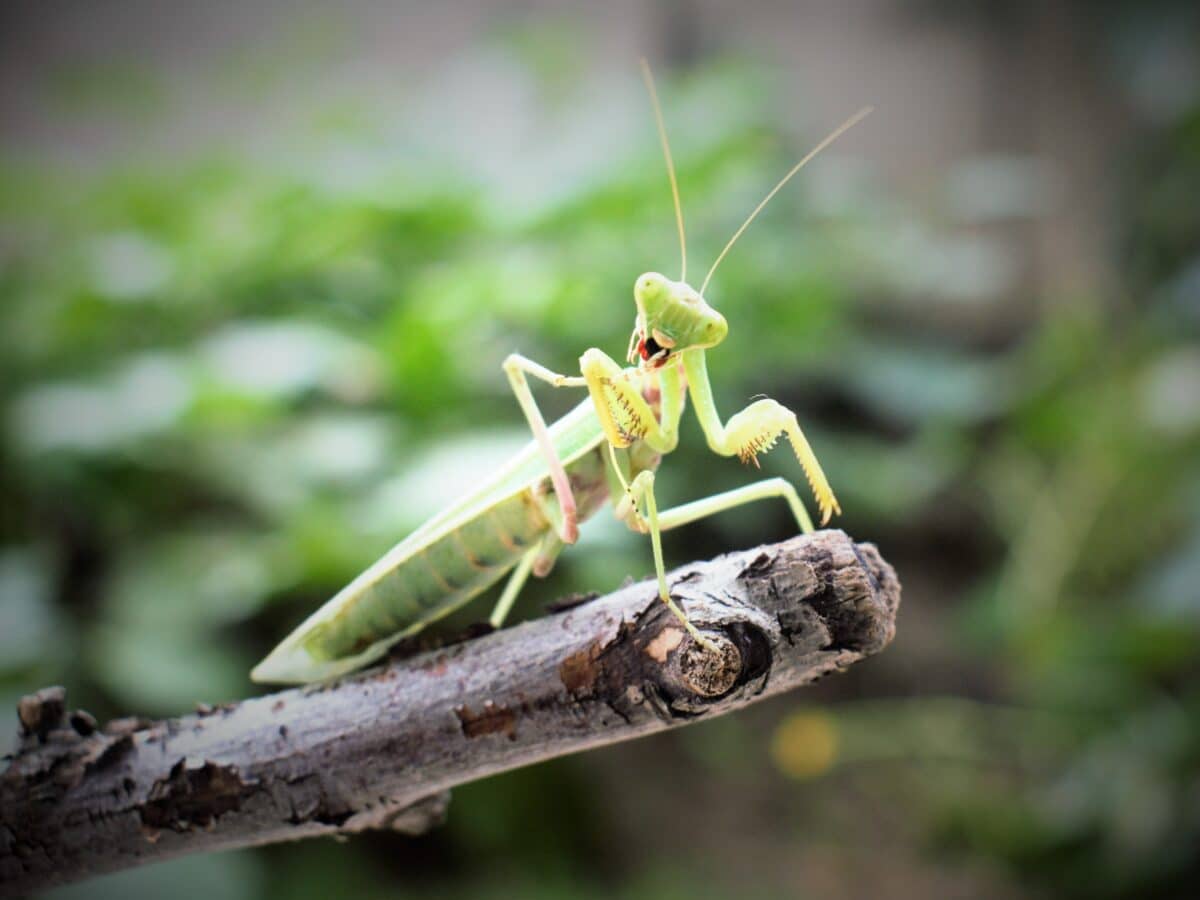
Well, no, generally, they do not prey on humans. Their target animals are tiny beings that are easy to trap and eat. In addition, if they bite humans. Nothing to worry about because the praying mantises have a non-venomous bite. Your finger won’t get any swelling, but a small red patch will be there. However, it might be more harmful to small children, as it may cause their bodies to swell.
How to cure the mantises bite?
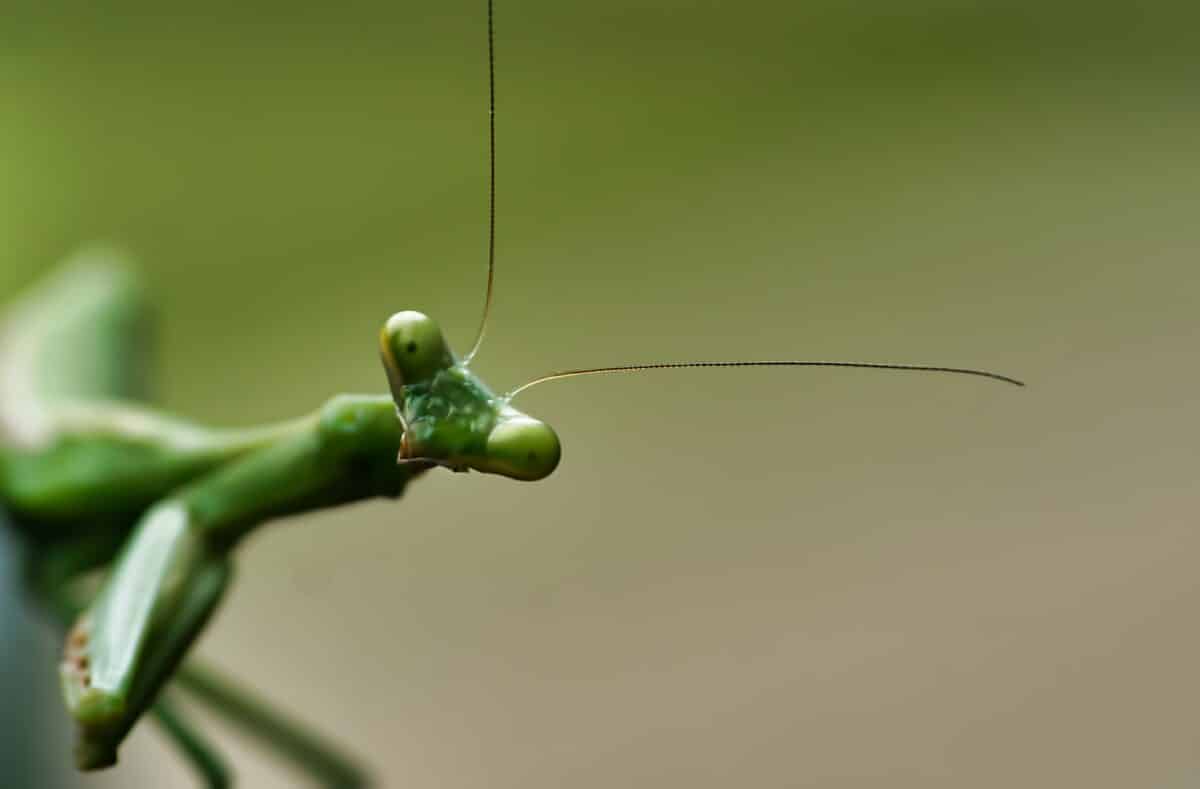
On the rare occasion of a mantis bite, you must consider certain things to avoid challenging conditions.
- Wash the affected area carefully with soap for 20 to 30 seconds.
- Rub the affected area continuously for 30 to 40 seconds with your hands until you feel it disappearing.
- Use a soft towel to dry the affected part of the baby’s body.
- Use smoothing cream or ointment to massage the affected area after washing gently.
- If the affected area remains, seek medical attention.
How to avoid the mantises bite?
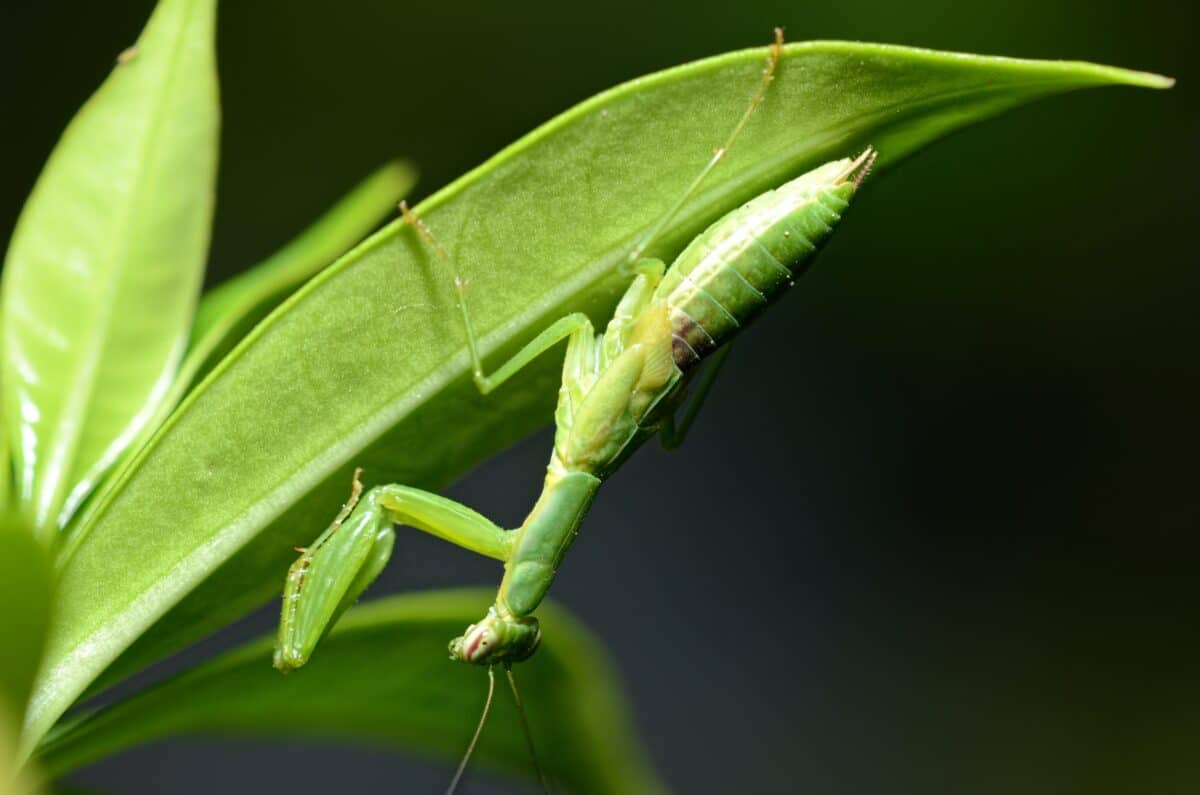
Please follow the following recommendations to avoid a mantises bite.
- Use protective gear, such as gloves and long-leg leather socks, in areas where the mantis is common.
- Consider insect repellent when entering these areas.
- Avoid moving or touching the mantis when discovered.
Conclusion
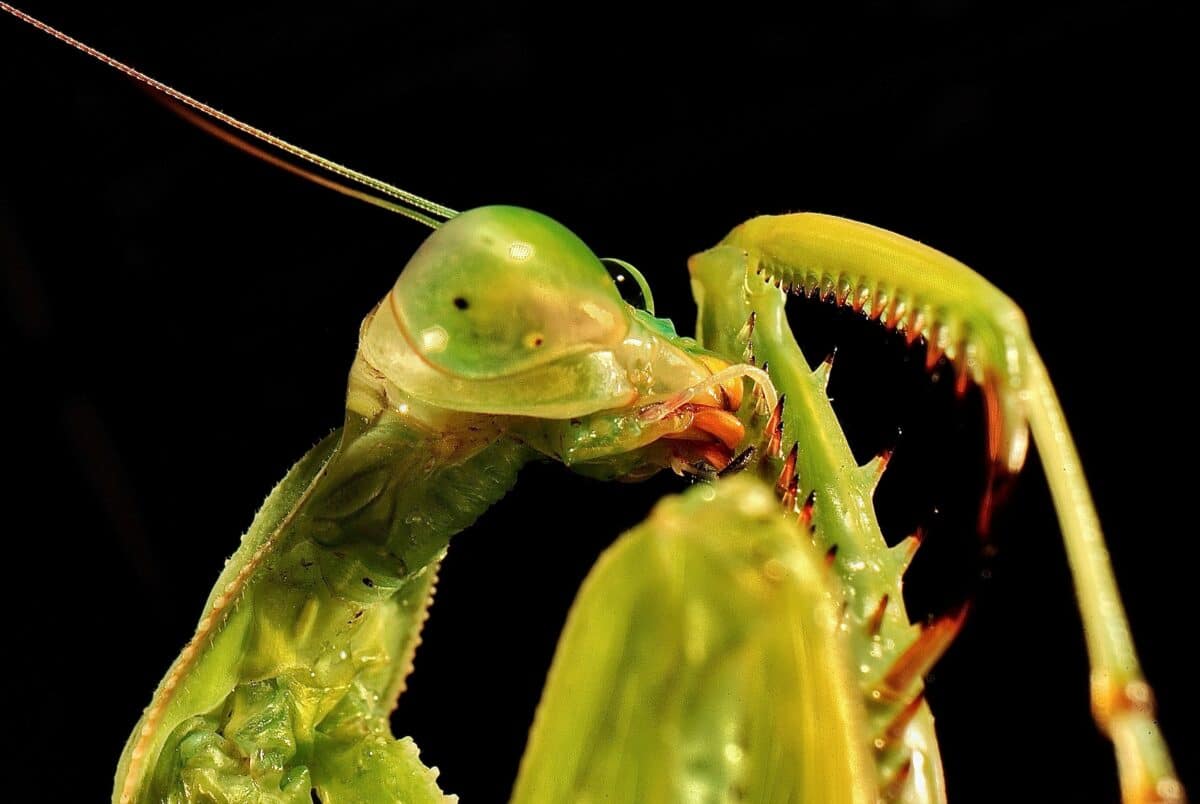
Generally, mantises do not bite humans unless treated or aggregated. In case of a mantis bite, follow the recommended care steps. If the infection remains, seek medical attention.
Preventing a mantis bite is simple; use appropriate protective gear, avoid aggregating the animal, and use insect repellant.
Thank you for following along this article! Next up, How To Get Rid of Roaches Overnight!
- Man Rescues Abandon Puppy in the Snow – Turns out to be a Wolf - April 23, 2024
- Groomer Turns Cat into CATZILLA - April 23, 2024
- Cat’s Funny Reaction to Cat-Cake being Cut - April 23, 2024

